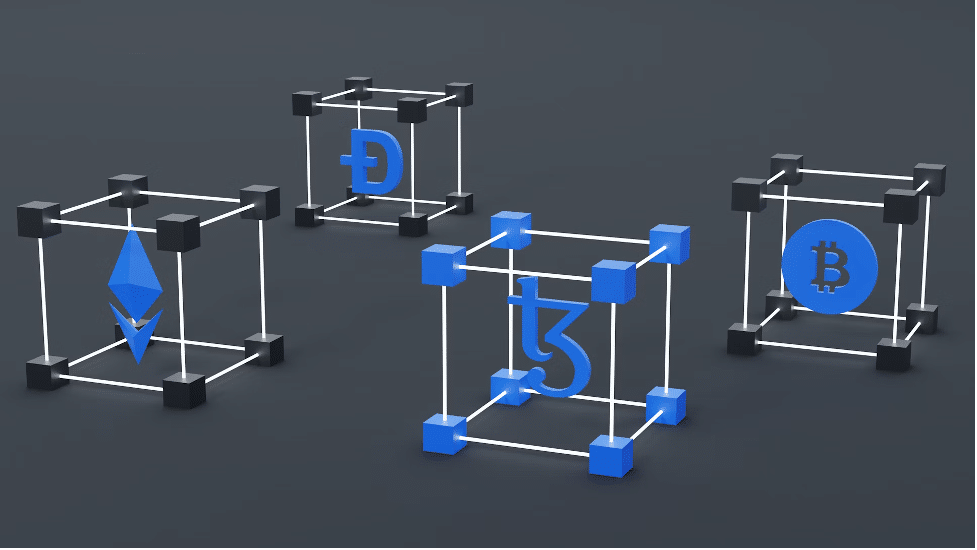There’s a shift happening. From Riyadh’s financial hubs to Dubai’s technology innovation centers, Arab banks silently but powerfully incorporate blockchain technology into their foundations. Not for headlines or publicity. But this massive opportunity is shifting the global economy. While the world turns, the region’s financial leaders are not idling. They are reengineering trust. For the blazing region, it is business as usual. Adapting at the speed of light. Dissecting this evolution, we hope to answer the questions: Why blockchain? And why now?
A Quiet Revolution in Banking
There are no shouts in the boardroom. No flashing banners. But make no mistake: Arab banks are rewriting the game’s rules. Emirates NBD launched its blockchain-based cheque system back in 2020, and that was just the beginning. Bahrain’s ABC Bank is partnering with JPMorgan to facilitate cross-border transfers. Kuwait’s Finance House is also testing real-time settlements with Ripple. This is not a hypothesis; it’s a reality. These banks are not just adapting but shaping a future where money moves as fast as data.
This new way of thinking about finance also impacts the entertainment industry, where speed, security, and innovation are becoming as important as in the banking sector. That’s why interest in formats like casino Tunis continues to grow — users want to see the same reliability, transparency, and technology in games as in digital payment systems. A modern casino is not about noise and chance but an intuitive interface, instant payouts, and a complete sense of control. Everything that is valued today, both in a banking application and at an online gaming table!
Why Blockchain Caught the Region’s Eye
What made Arab banks look toward blockchain with such intensity? It wasn’t just the technology — it was the perfect storm of opportunity and urgency. Here’s what pulled them in:
- Youthful, Digital-First Populations: Over 60% of the Middle East’s population is under 30. Mobile banking and instant apps? That’s the norm. Blockchain fits this pace perfectly.
- Massive Remittance Flows: The UAE handles over $47 billion in remittances annually. Blockchain-based rails slash transfer costs and delays.
- Government-Led Innovation: Saudi Arabia’s Vision 2030, the UAE’s Blockchain Strategy — when public policy encourages tech, the private sector races ahead.
- Islamic Finance Compatibility: Smart contracts enable Shariah-compliant banking with unmatched clarity and automation. That’s a game changer.
In short, blockchain didn’t just walk into the room. It was invited, welcomed, and given a bespoke suit. In this quest for a digital future, the Arab region is like MelBet Instagram Tunisia—a page where sports, technology, and instant updates converge in one stream, created specifically for a new generation. Everything must be fast, transparent, and at your fingertips—and both blockchain and sports content live by these rules!
Beyond Speed: What Banks Are Really After
Indeed, blockchain speeds up processes, but that’s not the main reason Arab banks are adopting the technology. What they truly want is control without chaos. Traditional systems are full of friction, like workflows in a joining document spool, middlemen, and expensive reconciliation processes, costing time and labor. Blockchain removes all these bottlenecks in the most elegant form.
Consider the mBridge project the UAE Central Bank has with China, Thailand, and Hong Kong. It is not only about quick settlements. It is also secure, programmable algorithms, structured money that is spent, moved, and allocated with surgical precision. Saudi Arabia’s Project Aber, a borderless digital currency pilot with the UAE, demonstrated how two central banks could exchange value in real time without trust issues. That’s more than just speed. It’s structural clarity.
Transparency That Builds Confidence
Transparency is a prerequisite in an environment where trust is priceless. Blockchain technology allows banks to track all transactions while maintaining the client’s confidential information. It is not supervision. It is peace of mind.
Buying and selling trade documents is a common practice in finance. Why not use blockchain in finance? Operating with blockchain in trade finance at Emirates Islamic Bank demonstrated great success with minimal settlement times, documented verification, and minimal errors. There is no assumption—only validated truth.
In 2019, Bahrain’s Central Bank was the first to implement crypto-assets and blockchain banking regulations. Over 30 companies have since registered under its sandbox for financial technology regulation. This isn’t a new phenomenon. It is a multidimensional framework of insight. Clients, regulators, and institutions work in a unified field of data. That trust is instant credibility, surpassing any marketing scheme.
Making Cross-Border Payments Effortless
Cross-border payments used to be a nightmare. Blockchain is making them feel like local transfers. Here’s how different banks are using it to rewire remittances and settlements:
| Bank/Institution | Project | Impact |
| Bank ABC (Bahrain) | JPMorgan Onyx Network | Real-time USD transfers |
| Central Bank of UAE | mBridge (with BIS) | Instant CBDC cross-border settlements |
| Kuwait Finance House | Ripple integration pilot | Faster cross-border retail payments |
| Mashreq Bank (UAE) | Blockchain trade finance platform | 70% reduction in processing time |
| Saudi British Bank (SABB) | RippleNet for international wires | Lower costs and error rates |
From personal remittances to corporate treasury, blockchain isn’t replacing systems — it’s refining them. Payments are now faster, cheaper, and — crucially — verifiable.
Compliance Made Smarter, Not Harder
Governments and regulators are not just observing this wave. They are also riding it. In 2022, the United Arab Emirates (UAE) established the Virtual Assets Regulatory Authority (VARA), becoming the first blockchain federal regulator. There is no guesswork, no gray areas.
Some banks, like Abu Dhabi Commercial Bank, integrate compliance functionality directly into smart contracts. Picture a loan that checks sanctions lists in real time before approval. That is already happening. Rather than reducing compliance, blockchain automates compliance. The FinTech sandbox in Bahrain permits controlled real-time innovation within stringent legal frameworks. The Saudi Central Bank issued licensing guidelines for DLT-based financial services and has also been active in other areas.
What about anti-money laundering? Blockchain provides unalterable, auditable trails. For Know Your Customer (KYC), blockchain-based shared digital identity systems mitigate duplication and identity fraud. The objectives are not limited to rule compliance. They entail providing solutions that radically streamline and render rule evasion impossible.

Partnering With Innovation, Not Fighting It
Arab banks aren’t just adopting blockchain — they’re co-creating it. Instead of treating startups as threats, they’re forming alliances. Here’s what this collaboration looks like:
- Wio Bank (UAE) — A digital bank backed by Abu Dhabi Developmental Holding, partnering with blockchain startups for real-time services.
- FAB (First Abu Dhabi Bank) — Exploring tokenization of real estate through blockchain with local tech firms.
- Central Bank of Saudi Arabia — Partnered with ConsenSys and Ripple for cross-border digital currency research.
- Qatar FinTech Hub — Backing dozens of blockchain-based financial startups through accelerator programs.
This isn’t about disruption. It’s about fusion. The region’s largest banks are building the future alongside coders, founders, and developers. They’re not resisting the tide. They’re steering the ship.
A Future That’s Already in Motion
This isn’t conjecture. It is progress. From central banks to retail payments, blockchain technology is no longer a question — it’s an answer. The Arab world is not chasing after trends. It’s the one creating them. The deals are being made, the partnerships are signed, and the technology is being tested and retested. And it’s working. Could it be that blockchain is the connective tissue integrating the antiquated with the modern? It already is. The future of finance does not lie on the horizon — it’s actively operating, and Arab banks are already attuned to its pulse. Pay attention. The closing is yet to come on this opening chapter!
